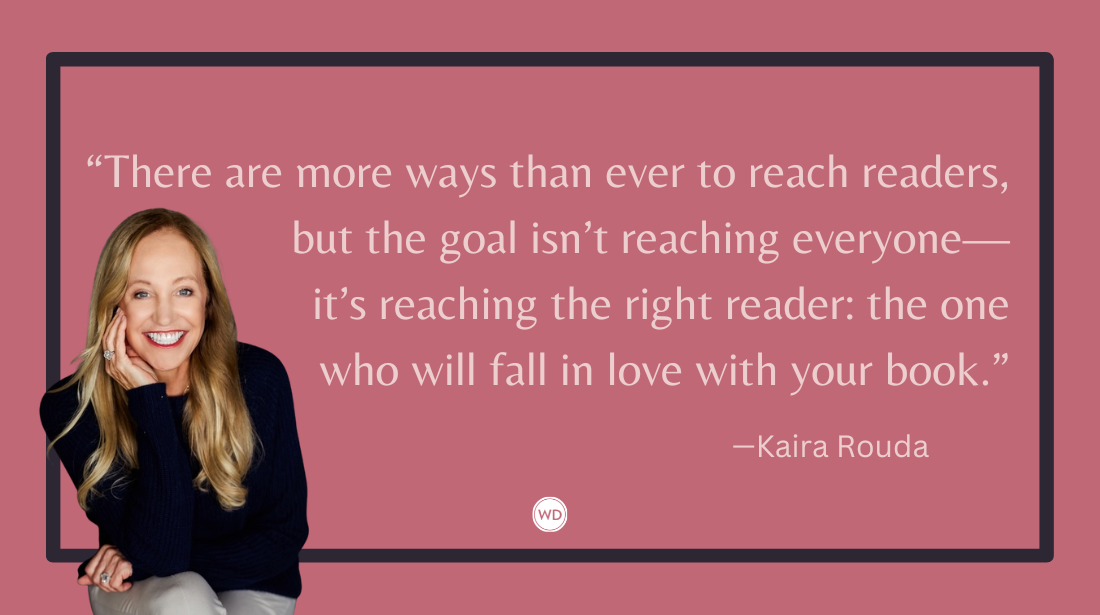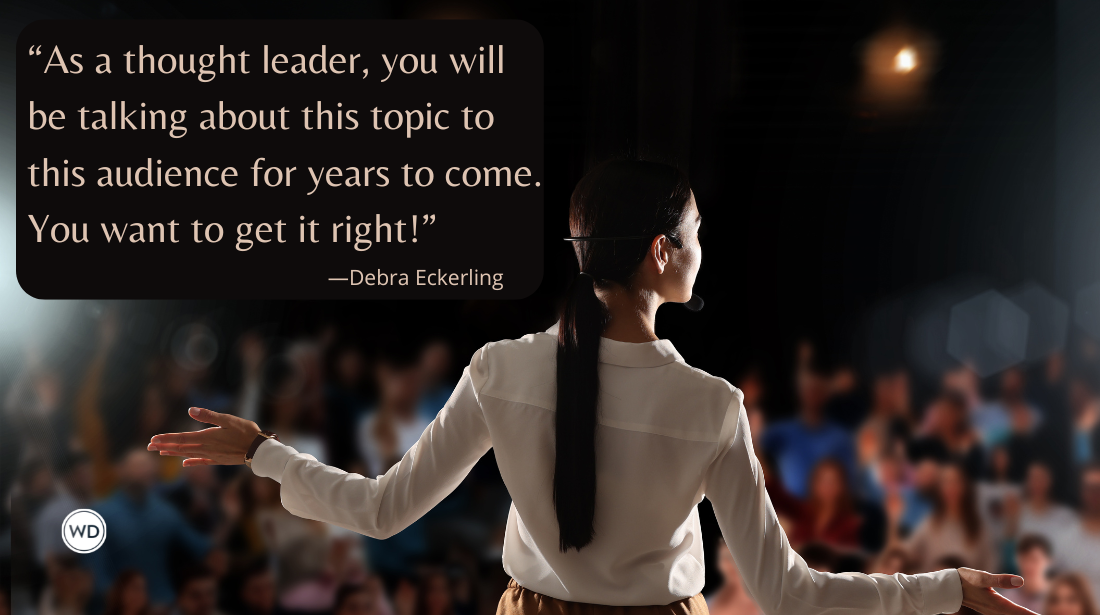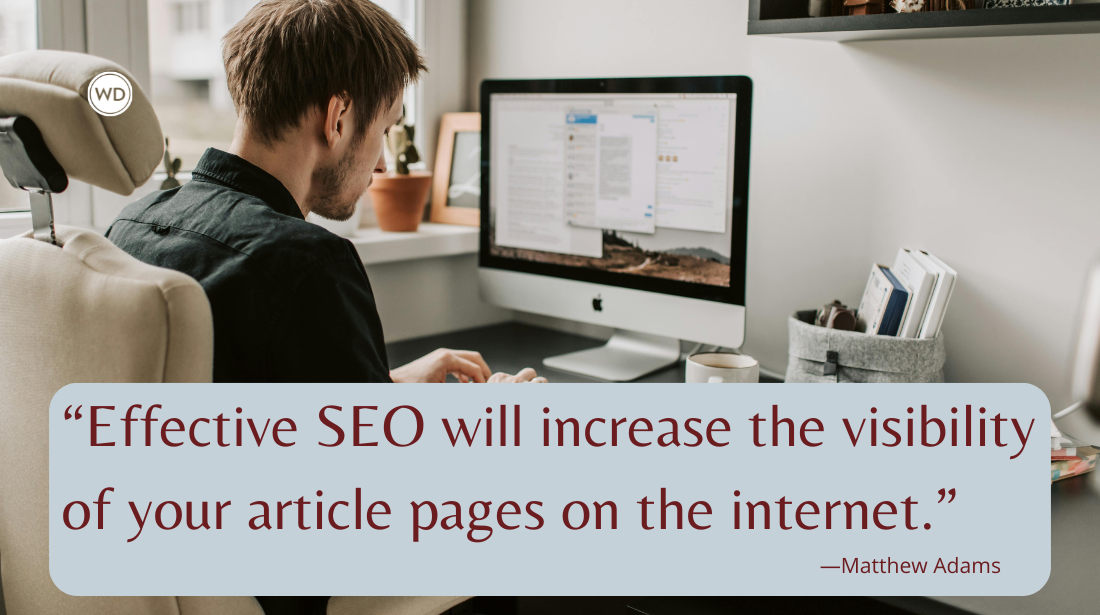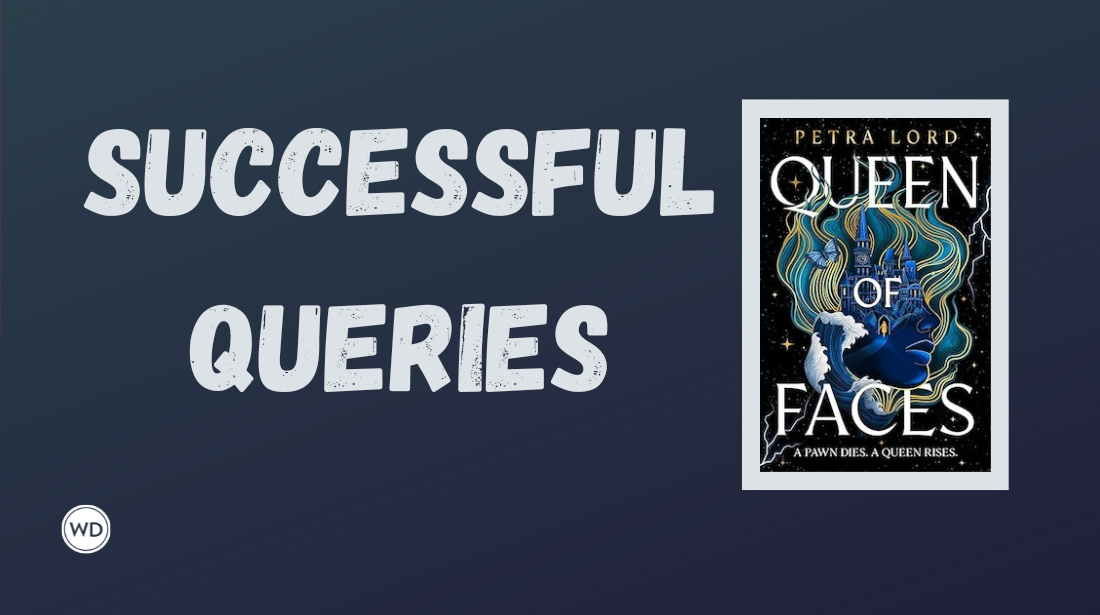7 Ways to Turbocharge Your Ebook Marketing
Smart ebook marketing works like a magnet to bridge the gap between readers’ unmet desires and your book’s ability to satisfy those desires. Here are seven proven ebook marketing strategies you can implement immediately, at no cost.
Someone somewhere wants to read your ebook right now. They just don’t know it yet.
Enter ebook marketing. Marketing is how you reach your readers—regardless of whether you’re publishing independently, through a digital or small press, or in the big leagues. And even
if someone is assisting you with the task—whether a publishing house or a public relations professional for hire—a lot of it is going to be up to you.
The task may feel daunting, whether you’re preparing to market your first book or your 50th. It’s tough to stand out when you’re competing against millions of other books.
But I have good news: Your book is unique. Your readers are reachable.
The key is in understanding that marketing is a broader concept than you might think. There’s much more to it than social media, paid advertising and branded pencils. Marketing is everything you do to make your book more discoverable, more desirable and more enjoyable for your target readers.
Readers look to books to satisfy emotional and intellectual aspirations. A reader may desire to laugh, cry, reflect, learn, escape, or all of the above and more. The same reader may desire a fun, sexy romance today and a serious political memoir tomorrow.
Smart ebook marketing works like a magnet to bridge the gap between readers’ unmet desires and your book’s ability to satisfy those desires.
Here are seven proven ebook marketing strategies you can implement immediately, at no cost.
The Rising Power of Indie
Ten years ago print books accounted for more than 99.5 percent of all book sales. It was a time when self-published authors were shut out of bookstore distribution.
The seeds of the indie ebook revolution were planted between 2007 and 2010, a period of
time in which Amazon, Sony, Barnes & Noble and iBooks opened their ebookstores to self-published ebook authors.
Once the e-bookstores began carrying self-published ebooks, everything changed. Indie ebooks started selling. Indies started hitting the bestseller lists.
In those early days of the ebook market, the rules for marketing weren’t yet written. Everyone was a clueless newbie—large publishers included.
For the first time ever, the playing field wasn’t just level, it was tilted to the indie ebook author’s advantage. Unburdened by centuries of publishing dogma, these scrappy indies rolled up their sleeves, got creative and made new rules.
With unbridled experimentation, these newly fledged self-publishers suffered their fair share of mistakes. Yet in the process they also stumbled upon and pioneered many of today’s most effective ebook marketing techniques.
Today indie authors are among the most sophisticated ebook marketers. Large publishers continue to look to the indies for marketing inspiration.
1. Start with preorders.
A preorder is simply an advance listing of your e-book at major retailers. Authors who list their e-books for preorder will sell more books, period.
Preorders enable more effective advance marketing. When preorders are live, authors can start marketing their books up to 12 months in advance of release, even before they’ve finished writing them, by making a call to action part of their message.
If you’re like most writers, you already tease your readers on social media about your works-in-progress. By including a preorder link when you do, you can capture their order the moment you command their attention and interest.
Preorders work for any book, but they work exceptionally well for series books. If you have the next book in your series up for advance ordering, you can funnel readers there and secure the sale as soon as they finish the previous book.
At iBooks, one of the world’s top sellers of ebooks, preorders influence their bestseller lists. Unlike other retailers, iBooks credits all your accumulated preorders toward your first day’s sales rank. This causes the book to spike higher in their rankings upon its release, which then makes the books more visible and more desirable to more customers.
Look ahead at your publishing plan and get everything up for preorder as early as possible. On some platforms, you can even set up preorders before you have a cover or completed manuscript—all you need are a title and some basic specs (price, etc.). These preorders are called “assetless” or “metadata-only,” but they still count.
2. Create a private email list.
Every author should maintain a private email list. Your list gives you a direct, unfiltered communication channel to your readers.
Never add anyone to your list without first obtaining her permission. You want to create a quality list that is 100 percent opt in. Once you have subscribers, respect their inboxes and treat them like royalty. Offer them early notifications of your upcoming releases for presale,or offer exclusive sneak peeks (excerpts, etc.).
Use an email list management tool to build, manage and track subscriber sign-ups, and to create and send professional-looking emails. One of the most popular tools for doing so is MailChimp (mailchimp.com). It’s free for your first 2,000 subscribers. (For more about how to build an email list, visit writersdigest.com/dec-17.)
3. Update your email signature.
You probably compose dozens of personal emails every week, conversing with friends, family and readers. Each of those emails represents an opportunity to remind recipients you’re an author and have books they might want to read or recommend to their friends—as well as social media channels they may want to follow.
This is where the email signature comes in. An email signature is a short block of text that you can set to automatically append to the bottom of every message you compose. It’s polite, unobtrusive and simple.
To learn how to create or update your signature for your particular email program, consult the help menu, or type “create email signature for [enter name of your email program]” into any search engine.
Below is an example of how to format your signature.
Victoria Benson
Author
Facebook: [hyperlink]
Twitter: [hyperlink]
Website: [hyperlink]
Sign up for my mailing list: [hyperlink]
Coming soon: [Tell readers about your next release that’s on preorder now.]
4. Add enhanced back matter.
Many authors end their book with a period, followed by nothing else. That’s a missed opportunity.
Put yourself in your readers’ shoes. They finished reading you for the first time and now you’re their new favorite author. They want more from you. They want to connect. Make it easy for them.
Add these simple sections to the end of your book:
Other books by Victoria Benson (if applicable)
[Book 1]
[Book 2]
Connect with Victoria Benson
Facebook: [hyperlink]
Twitter: [hyperlink]
Blog: [hyperlink]
Join my email list: [hyperlink]
About Victoria Benson: [Short personalized bio to humanize you, such as: Victoria Benson is an award-winning author of romantic thrillers. She lives in Kansas where she and her husband, Joe, are the proud parents of two amazing teenage daughters and three grumpy alpacas. In her spare time, Victoria loves traveling for research and corresponding with her readers on Facebook.]
Beyond those no-brainer basics, you might also consider adding a discussion guide for reading groups and sneak-peek excerpts (a chapter or two) of your other books.
5. Consider giving it away.
Short-term promotions for temporarily free titles—or ongoing promotions for permanently free novellas, short ebooks or series starters—can help you grow your readership faster and sell more books.
Offering something for free eliminates the financial risk for readers considering taking a chance on a new author. Free books, on average, generate more than 10 times more downloads than books at any other price. Once your writing earns the readers’ trust and admiration, they’ll want to purchase your other books.
If you write series, try giving the first installment away for free. For the majority of authors, series with free starters, on average, earn significantly more readers and income than series without them. I know many successful authors for whom a free series starter is the centerpiece of their marketing strategy.
Today indie authors are among the most sophisticated ebook marketers. Large publishers continue to look to the indies for marketing inspiration.
If you have only one standalone ebook and understandably wish to earn some income from it, you can still benefit from the power of free by running short-term promotions. This strategy can build buzz, revive an older book, grow your social media following (thanks to your now-enhanced back matter), and generate reviews at major retailers, on Goodreads and elsewhere.
6. Extend your reach with a multi-author “box set.”
A multi-author box set is where two or more authors contribute a full-length ebook into a single combined collection. To try one, partner with writers whose work you can honestly and enthusiastically recommend to your own readers.
The power of multi-author box sets is in the collaborative marketing potential. A box set amplifies the marketing reach of each participating author. If you’re participating in a box set with 10 other authors, those authors are promoting your name and yourbook to their captive fan bases. And you’re promoting them and their books to yours.
The goal of a multi-author box set is to maximize unit downloads so each author can gain the greatest exposure to new readers. Price the box set at free, even for a limited time, for maximum effect. Free box sets of series starters can work great, too.
7. Be nice.
What’s this radical kumbaya notion doing in a checklist of ebook marketing tips, you ask? Publishing is a relationship business. Your success as a writer is dependent upon the many lucky breaks you will receive from people who have the power to open doors for you.
Who are these powerful people? They’re your partners. They’re everyone in the publishing industry. It’s your fellow author who can introduce you to other people you want to know. It’s the traditional publisher that might someday want to offer you a six-figure book deal. It’s the retailer or distributor that can get your book prominently featured in stores. It’s the agent who may come knocking on your door next year with a movie option.
Why, then, is it so common to see cranky self-
published authors on social media bad-mouthing entire classes of publishing people?
If the day comes when one of these people or organizations has an opportunity that opens a door for you, you don’t want them to remember you as that nasty internet troll who criticized them and all their friends so many years back.
Several years ago, The New York Times bestseller Jonathan Maberry shared these wise words when interviewed about smart social media strategies for authors:
“Even if you are a naturally cranky, snarky, sour-tempered pain in the ass, for God’s sake, share that with your therapist or priest. When you go online to promote yourself and therefore your products, try not to actually scare people off your lawn.”









